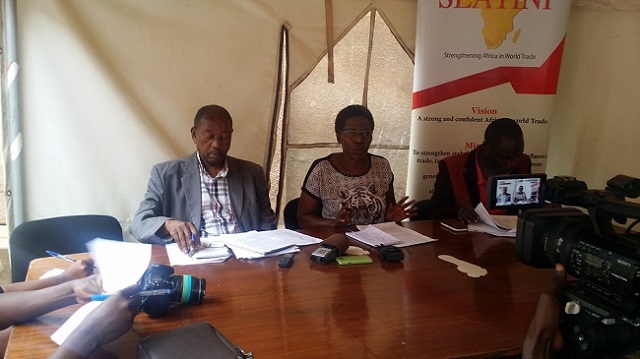
Kampala, Uganda | JULIUS BUSINGE | As the budget making process for FY2018/2019 continues at different fora, several players are taking part by coming out with several proposals.
The latest player is Southern and Eastern African Trade, Information and Negotiations Institute (SEATINI). It is calling on Parliament to increase allocation to Trade, Tourism, Industry and Cooperatives from the proposed Shs 92 bn for FY2018/19, which is equivalent to 0.5% of the [proposed] Shs 29.2trillion in the budget framework paper (BFP). The sector was allocated Shs 116.6bn in the current running budget (FY2017/18).
The organization officials are not specific about the increment they are suggesting.
But Jane Nalunga, the organisation’s country director for Uganda says the current funding to the sector may not support the realisation of the forthcoming budget theme; “Industrialisation for job creation and shared prosperity” and the general development agenda presented in Vision 2040.
“Industrialisation is critical in establishing backward and forward linkages between manufacturing and agriculture, creating employment, advancing technology, stimulating agriculture production and productivity and export competitiveness and ultimately improving people’s livelihoods,” Nalunga said.
She added that the sector is important in improving Uganda’s exports thereby reducing the ever increasing trade deficit quoted in the region of US$238.8 million as of November 2017.
In addition, Nalunga said that the increment would support the sector heads to fund the Inter Institutional Trade Committee (IITC) which provides a forum for more comprehensive consultations on ongoing trade and investment related negotiations and generate national negotiating positions.
The increment would also support the ministry to raise awareness and train farmers, manufacturers and traders about standards and ensure compliance. It would also help in dealing with the poor standards of goods and services on the market; revitalise the warehousing receipt system and the famers’ cooperative societies. It would also help support Uganda Development Corporation whose core role is to promote trade and industrialization and more.
Earlier, on Jan.21, Nathan Irumba, the Chief Executive Officer of SEATINI told journalists at their head offices in Bukoto, a Kampala suburb that government needed to improve its tax policy and administration so as to broaden tax base by partly bringing onboard the informal sector that have muted the number of taxpayers at slightly over one million out of a big population of 40 million people, with majority involving themselves in income generating activities.
 The Independent Uganda: You get the Truth we Pay the Price
The Independent Uganda: You get the Truth we Pay the Price





